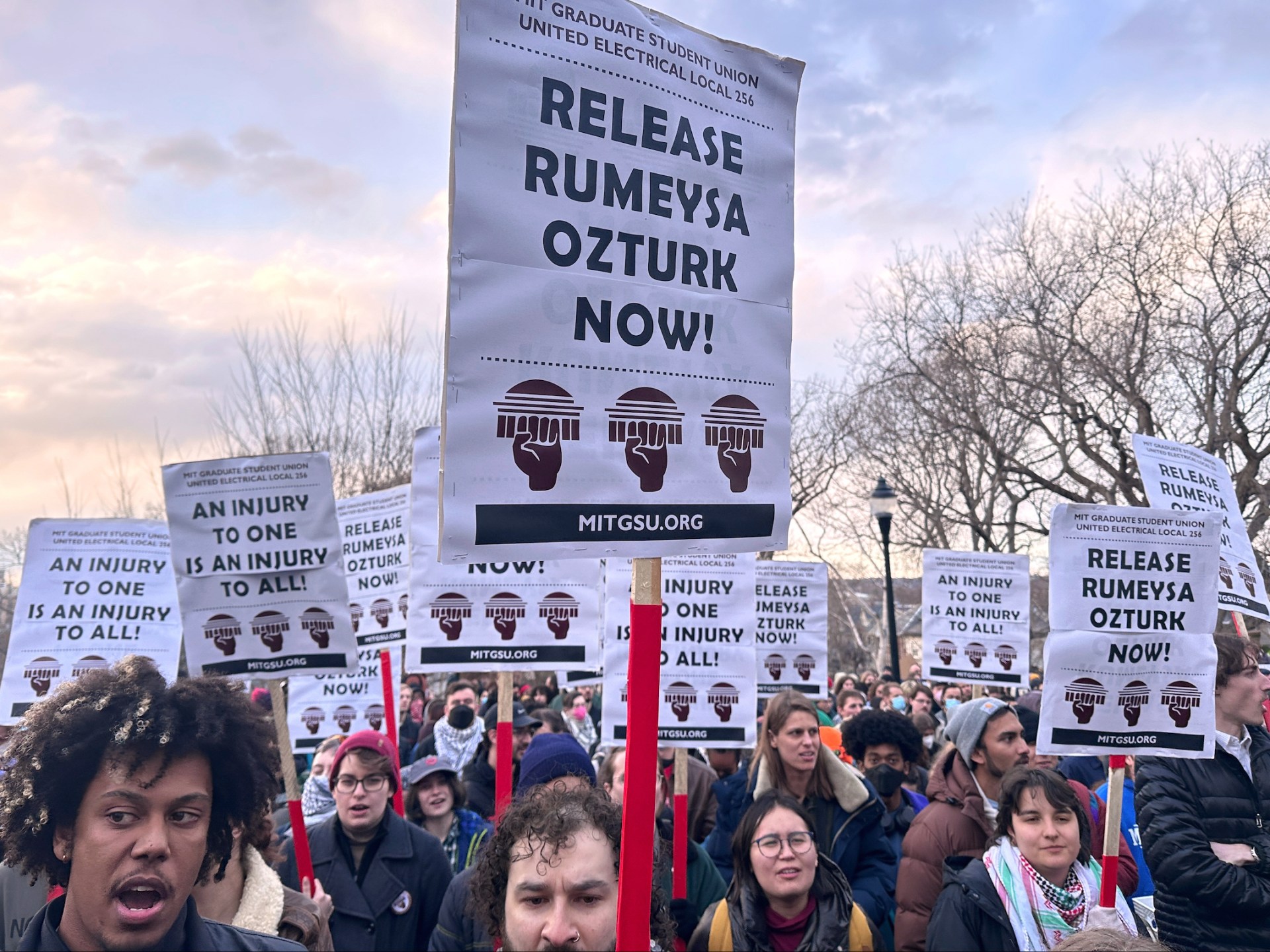In a ruling on Friday, District Court Judge William S. Sessions determined that Ozturk, who is currently imprisoned in Louisiana, has provided “significant evidence” to support the claims that her detention violated her freedom of speech and due process.
In March, Ozturk was detained and her visa was suspended. Supporters claim that Tufts University was targeted because of a student government resolution that demanded that the school stop operating in Israeli companies. She co-authored an op-ed last year that criticised the school.
According to Sessions, Ozturk’s case needs to be heard in court in order for these claims to be evaluated.
He wrote, “The Court accepts that this case will continue in this Court with Ms. Ozturk physically present for the remainder of the proceedings.”
The judge set a bond hearing on May 9 for Ozturk’s request for a temporary release and gave the government until May 1 to transfer her.
In what critics claim is a government plan to confine detainees away from their supporters and attorneys and place them in conservative-leaning legal districts, Ozturk was detained in a detention facility in Louisiana.
On March 30, the Tufts University student was detained close to her Massachusetts home. On surveillance video from the incident, masked immigration officers grabbing her hands as they approached her on the street.
The incident was characterized as an abduction by critics.
Her student visa has been suspended as part of President Donald Trump’s administration’s extensive crackdown on foreign students who have protested or criticized Israel’s occupation of Gaza.
Sessions confirmed that the op-ed is the only real proof that the US government is using to detain and deport Ozturk.
Her argument is supported by her assertion that the government’s motivation or goal is to punish her for co-authoring an editorial in a campus newspaper that criticized the administration of Tufts University and fortify her political speech, Sessions said.
The government has not yet provided any proof that Ms. Ozturk’s detention had a different, legitimate motivation or goal.
He added that non-citizens living in the US are now covered by the First Amendment, which guarantees free speech.
A habeas corpus petition is the term used to describe the case Sessions is overseeing. Not Ozturk’s wider immigration push, but it challenges her detention.
Non-citizens file their cases with an immigration judge who is employed by the executive branch through a separate system where deportation cases are reviewed. Similar to the independent judiciary, it is not a separate entity from the government.
Advocates claim that immigration judges frequently “rubber-stamp” executive branch work decisions. Ozturk’s release on bail was earlier this week denied by a Louisiana immigration judge.
A board of immigration appeals, an administrative body, has the authority to hear immigration cases. Immigration can petition to appear in court of appeals, which is a component of the traditional court system, as a last resort.
The Trump administration has been arguing for years that the law enacts regulations that preclude it from affecting immigration issues, which in turn gives the president broad authority to rule over issues of free speech and due process.
Secretary of State Marco Rubio has used a flimsy section of the Immigration and Nationality Act to authorize deportations because it gives him the authority to remove non-citizens who he deems have “serious adverse foreign policy consequences” for the US.
However, Ozturk and other students facing deportation may be affected by a portion of Friday’s ruling.
Sessions refrained from assuming that administrative procedures could prevent detained immigrants from exercising their constitutional rights.
The government, according to the judge, is arguing that an immigration law “practically grants the unreviewable power to detain individuals for weeks or months, even if the detention is patently unconstitutional.”
Source: Aljazeera

Leave a Reply